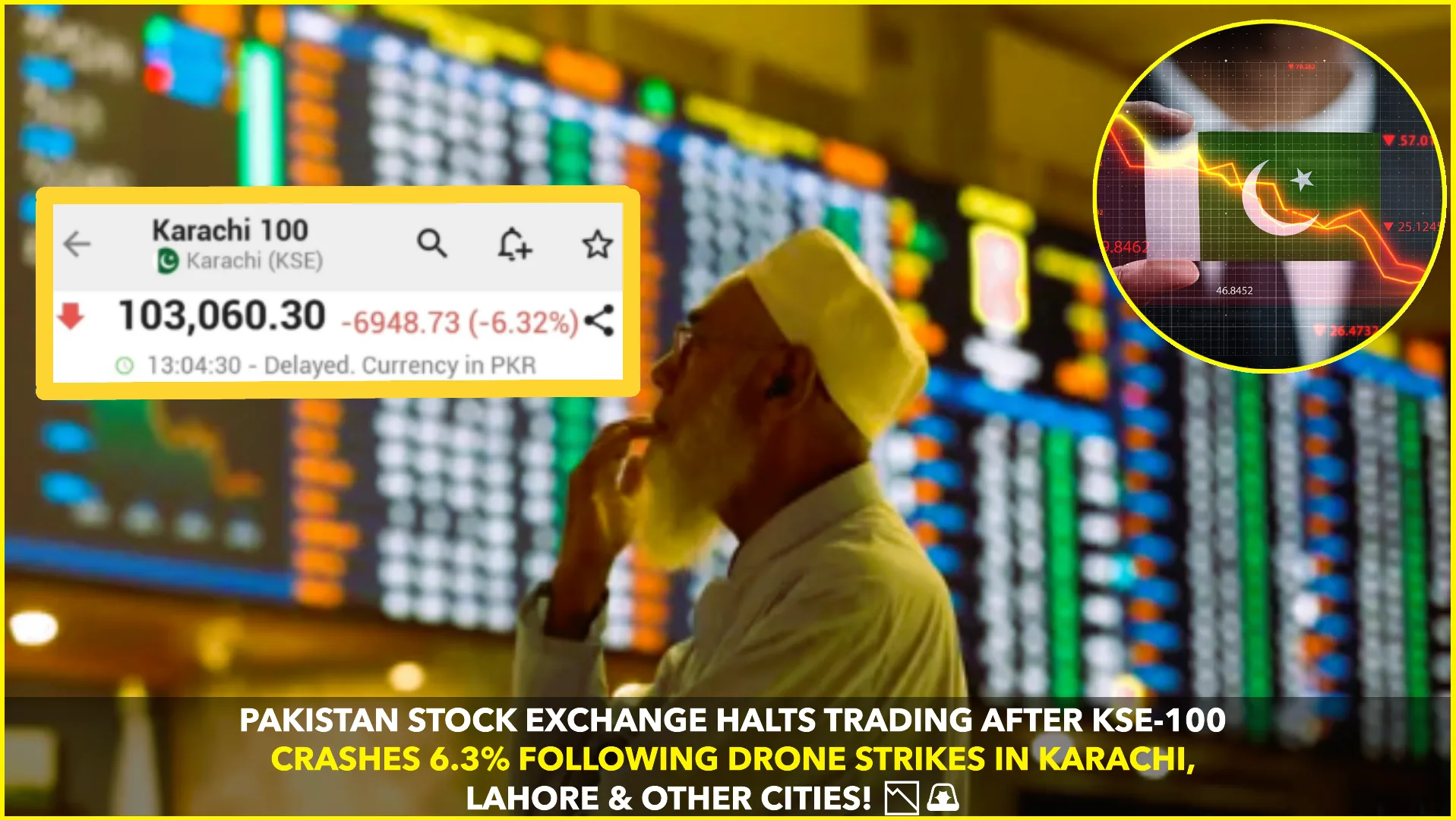On May 8, 2025, the Pakistan Stock Exchange (PSX) experienced a significant disruption as trading was halted for an hour after the benchmark KSE-100 index plummeted by 6.3% during intraday trading. This sharp decline was triggered by escalating geopolitical tensions between Pakistan and India, particularly following reports of drones being shot down over major Pakistani cities, including Karachi and Lahore.
The PSX invoked its market-wide circuit breaker mechanism to prevent further panic selling and to allow investors a moment to reassess the rapidly evolving situation. The trading halt, which lasted approximately 60 minutes, was a response to the market’s steep fall, reflecting investor anxiety over the deteriorating security landscape.Business Today
The immediate catalyst for the market’s downturn was Pakistan’s claim of intercepting and shooting down 25 Indian drones over its airspace. These drones were reportedly targeting strategic locations in major cities, including Karachi, Lahore, and Rawalpindi. The Pakistani military described these drones as Israeli-made Harop loitering munitions, which are designed for precision strikes on high-value targets. The interception of these drones marked a significant escalation in the ongoing hostilities between the two nuclear-armed neighbors.
In response to the drone incursions, Pakistan launched retaliatory strikes, targeting what it identified as terrorist infrastructure within Indian territory. These actions further heightened tensions, leading to fears of a broader conflict. The situation prompted international concern, with global powers urging both nations to exercise restraint and engage in dialogue to de-escalate the crisis.
The financial markets reacted swiftly to these developments. The KSE-100 index’s 6.3% drop was one of the most significant single-day declines in recent years, erasing substantial market capitalization and investor wealth. The sell-off was broad-based, affecting various sectors, including banking, energy, and manufacturing. Analysts attributed the market’s volatility to the uncertainty surrounding the geopolitical situation and the potential economic repercussions of a prolonged conflict.
Investor sentiment was further dampened by concerns over the potential impact on Pakistan’s already fragile economy. The country has been grappling with high inflation, a depreciating currency, and a widening fiscal deficit. The prospect of military engagement raised fears of increased defense spending, potential sanctions, and disruptions to trade and investment flows.
In the aftermath of the trading halt, the PSX resumed operations, but volatility persisted as investors remained cautious. Market participants closely monitored developments on the geopolitical front, with many adopting a wait-and-see approach. Financial analysts emphasized the importance of diplomatic efforts to resolve the crisis and restore investor confidence.
The events of May 8 underscore the vulnerability of financial markets to geopolitical shocks, particularly in regions with longstanding tensions. The PSX’s circuit breaker mechanism played a crucial role in mitigating immediate panic, but the broader implications for the economy and investor sentiment hinge on the trajectory of Pakistan-India relations in the coming days.India Today+2Reuters+2The Australian+2
As the situation evolves, stakeholders, including policymakers, investors, and international observers, will be watching closely for signs of de-escalation and a return to stability in the region.










